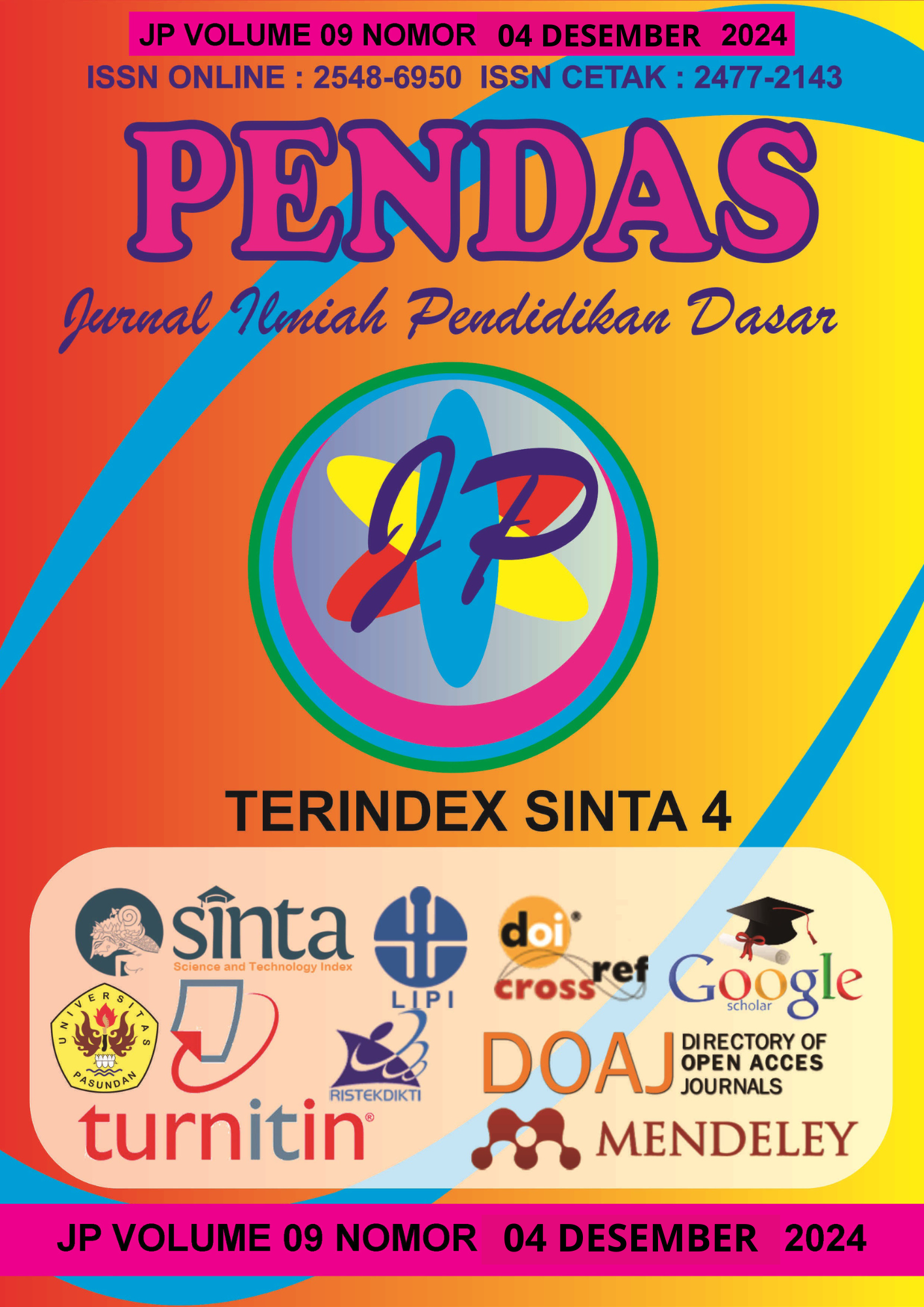BUDAYA BELAJAR SANTRI DAN DAMPAKNYA TERHADAP PENGEMBANGAN SUMBER DAYA MANUSIA DI PONDOK PESANTREN BANGKALAN
DOI:
https://doi.org/10.23969/jp.v9i04.20232Keywords:
learning culture, boarding school, human resource development, religious education.Abstract
This study aims to explore the learning culture of students in Islamic boarding schools and analyze its impact on human resource development. Islamic boarding schools have become an important pillar of education in Indonesia, integrating religious and academic education to shape the character and skills of students. This research uses a qualitative approach with in-depth interviews and participatory observation to collect data from students, teachers, and administrative staff. The results show that typical pesantren learning methods, such as halaqah (group discussion) and muroja'ah (repetition of material), not only improve santri's understanding of religious material but also develop social skills, leadership, and work ethics. The disciplinary environment in pesantren has proven to be effective in shaping the independence and responsibility of santri. The conclusion of this study underscores the important role of Islamic boarding schools in developing soft skills needed in the modern world of work, thus contributing to improving the quality of human resources in Indonesia.
Downloads
References
Ball, R., J. Gerakos, J. T. Linnainmaa, and V. Nikolaev. 2016. Accruals, cash flows, and operating profitability in the cross section of stock returns. Journal of financial economics 121 (1):28-45.
Baltagi, B. 2005. Econometric analysis of panel data. Vol. 1: John Wiley & Sons.
Barney, J., M. Wright, and D. J. Ketchen Jr. 2001. The resource-based view of the firm: Ten years after 1991. Journal of management 27 (6):625-641.
Chen, M. J., and D. Miller. 2015. Reconceptualizing competitive dynamics: A multidimensional framework. Strategic management journal 36 (5):758-775.
Dechow, P. M., A. P. Hutton, J. H. Kim, and R. G. Sloan. 2012. Detecting earnings management: A new approach. Journal of accounting research 50 (2):275-334.
Gray, G. L., V. Chiu, Q. Liu, and P. Li. 2014. The expert systems life cycle in AIS research: What does it mean for future AIS research? International Journal of Accounting Information Systems 15 (4):423-451.
Gujarati, D. N., and D. C. Porter. 2008. Basic econometrics. Fifth Edition ed: McGraw-Hill.
Hartmann, F. G. H., and V. S. Maas. 2010. Why Business Unit Controllers Create Budget Slack: Involvement in Management, Social Pressure, and Machiavellianism. Behavioral Research in Accounting 22 (2):27-49.
Hoskisson, R. E., M. A. Hitt, W. P. Wan, and D. Yiu. 1999. Theory and research in strategic management: Swings of a pendulum. Journal of management 25 (3):417-456.
Larcker, D. F., and T. O. Rusticus. 2010. On the use of instrumental variables in accounting research. Journal of accounting and economics 49 (3):186-205.
Simunic, D. A., M. Ye, and P. Zhang. 2015. Audit Quality, Auditing Standards, and Legal Regimes: Implications for International Auditing Standards. Journal of International Accounting Research 14 (2):221-234.
Vasarhelyi, M. A., A. Kogan, and B. M. Tuttle. 2015. Big Data in accounting: An overview. Accounting horizons 29 (2):381-396.
Venkatesh, V., S. A. Brown, and H. Bala. 2013. Bridging the qualitative-quantitative divide: Guidelines for conducting mixed methods research in information systems. MIS Quarterly 37 (1):21-54.
Warren, J. J. D., K. C. Moffitt, and P. Byrnes. 2015. How Big Data Will Change Accounting. Accounting horizons 29 (2):397-407.
Wooldridge, J. M. 2005. Fixed-Effects and Related Estimators for Correlated Random-Coefficient and Treatment-Effect Panel Data Models. Review of economics and statistics 87 (2):385-390.
Wu, L.-Y., K.-Y. Chen, P.-Y. Chen, and S.-L. Cheng. 2014. Perceived value, transaction cost, and repurchase-intention in online shopping: A relational exchange perspective. Journal of Business Research 67 (1):2768-2776.
Downloads
Published
Issue
Section
License
Copyright (c) 2025 Pendas : Jurnal Ilmiah Pendidikan Dasar

This work is licensed under a Creative Commons Attribution 4.0 International License.














































